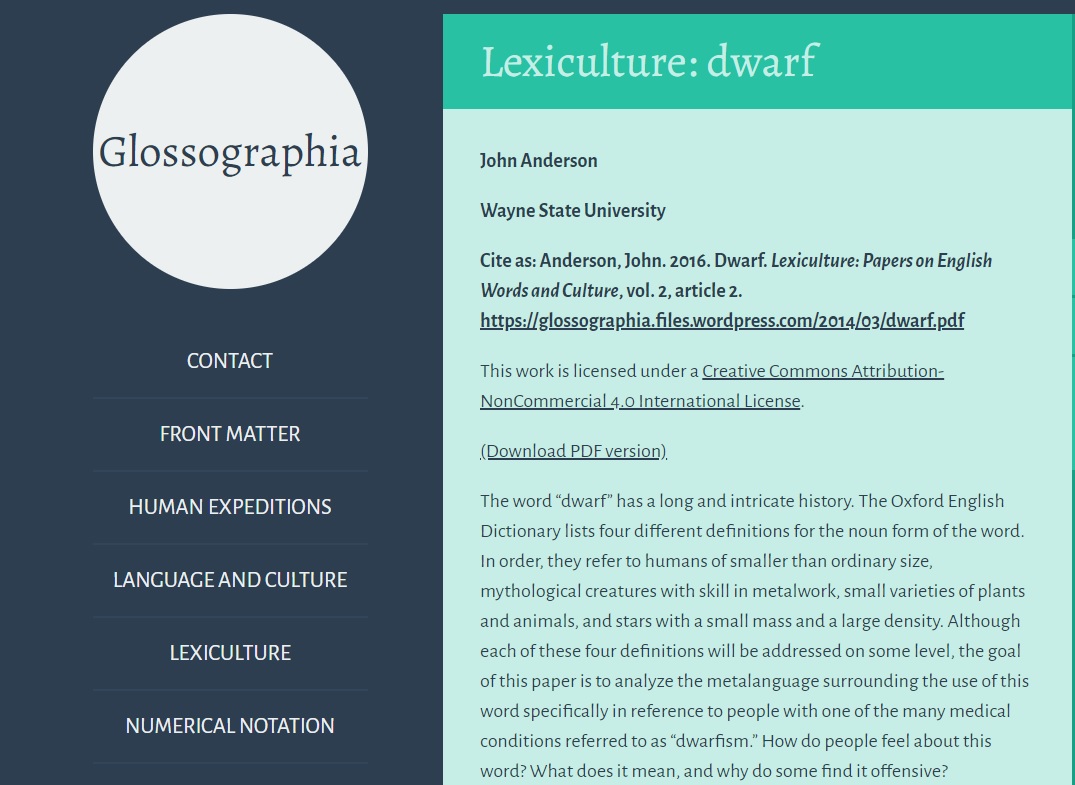Understanding the language & culture around achondroplasia
As long a population uses a language to communicate, this language will be a "live entity", that evolves by losing words and by creating new ones throughout times. Yet, when in the 21st Century, a community still keeps the use of words that carry centuries of negative interpretations, and when this community mostly unaware of these words origins and related meanings, there is a missed opportunity to do a positive change and actually improve the way people with skeletal dysplasias (including achondroplasia) are seen, respected and valued in society.
To address the wording topic, we share this article by John Anderson (Wayne State University, Detroit, USA) and this is the only publication in Beyond Achondroplasia in which words as "Dwarfism", "dwarf", "little people" are mentioned. The reader may consider okay, or be satisfied, or proud of its use, or identify himself/herself with these words, and we respect others' opinions.
Nevertheless, Beyond Achondroplasia focuses on progression and informing what is "out there to know".
In Beyond Achondroplasia:
- The person is valued above all, as an individual with a first and last name, identity, personality, family, friends, history, rights, and beliefs. Having one skeletal dysplasia (including achondroplasia) is one of many characteristics of the person.
- The person is not achondroplasia but has achondroplasia, and for that, we don't use the term "achondroplastic". A "person with achondroplasia" values the person and not the condition over the person.
- Doesn't advocate for dwarfism or dwarfism awareness but yes, for knowledge and information on skeletal dysplasias (including achondroplasia).
- Considers negative the designation "Little People", as it conveys less of a person, reducing the person's value
- A "person with short stature" is a clearer and not pejorative way to mention this physical characteristic.
We invite you to read this very important article and know more about the history and why words are what they are:

" Medical dwarfism has been known since ancient times. Images and even remains of human dwarfs have been found in Egypt, dating as far back as 4500 BCE. However, this was not seen as a form of physical handicap and did not preclude one from holding positions of authority (Kozma). Even some gods were depicted as dwarfs. However, not every society was as accepting as the ancient Egyptians, and throughout much of history, people have alienated and persecuted those who are different. One of the ways this has happened is through the use of pejoratives and derogatory slurs. Could “dwarf” be considered such a word?"
In Conclusion: It’s Not What You Say, But How You Say It
What are the alternative terms? “Midget” is clearly much more offensive. “Little People” has the same connotations of fantastic creatures, along with a sense of someone who is less important – as in “standing up for the little guy.” Nor does it fit well into every kind of usage. Matt Roloff, former president of the Little People of America, believes that “to an intellectual,” “Little Person” can sound more demeaning than a midget.
“Most individuals,” says Dr. Betty M. Adelson, “prefer simply to be called by their given names”. Regardless of the phrasing, dwarfs are human beings, and those who search for a word to describe people of short stature must be careful to avoid defining them by their condition. This remains true for any person. A derisive tone can make even a generally accepted word sound offensive. Changing a word alone will do little to change people’s opinions. A change in metalanguage begins not in the lexicon, but within the culture.
References:
Anderson, John. 2016. Dwarf. Lexiculture: Papers on English Words and Culture, vol. 2, article 2.


